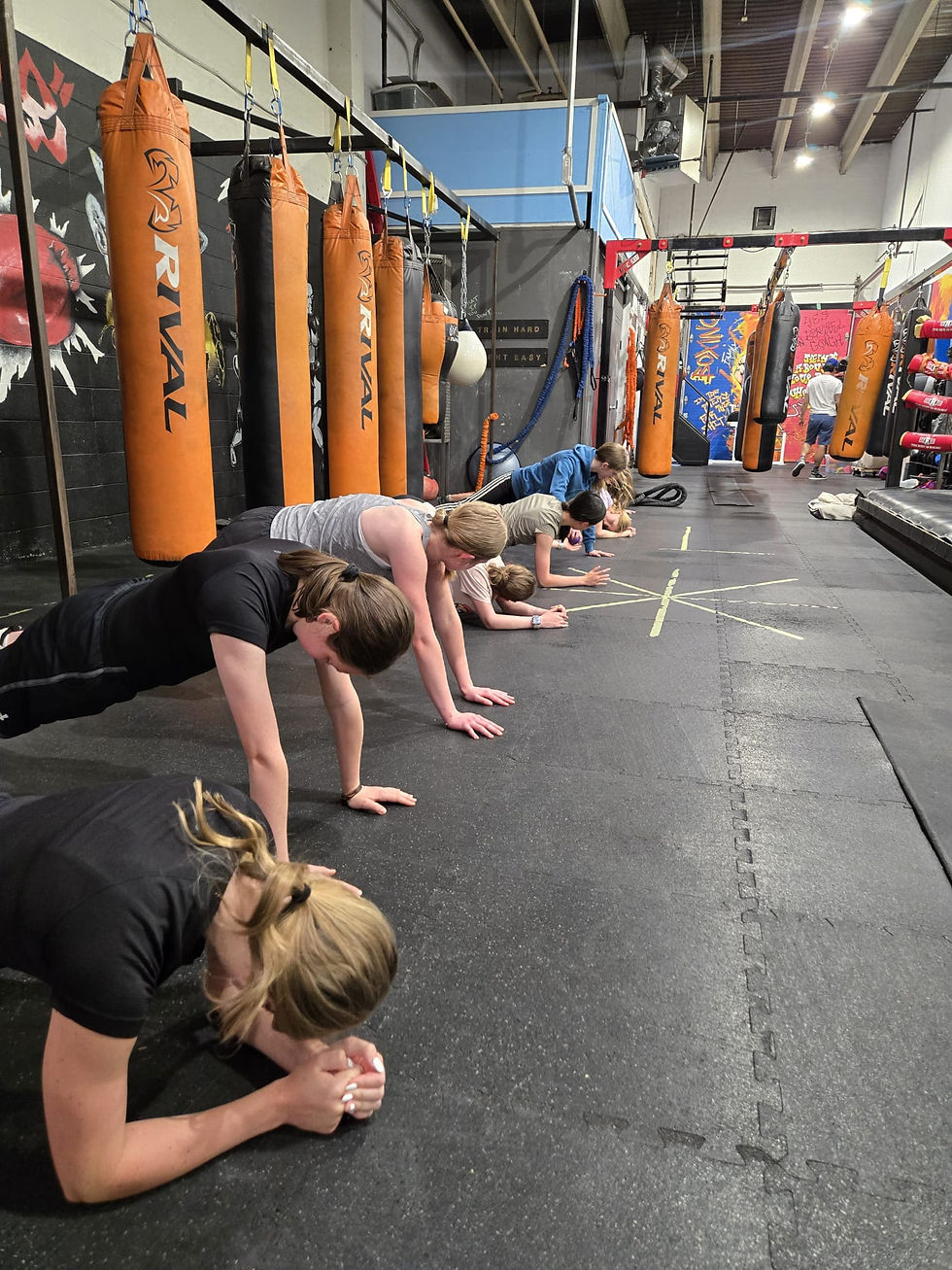Recovery Is Training: 6 Habits Every Athlete Needs to Level Up
- Mari Diallo
- Jul 10
- 3 min read

You don’t get stronger during training.
You get stronger when you recover from it.
Let that sink in.
Elite athletes don’t just train hard — they recover with intention.
Because the ones who go all-in on performance without respecting recovery? They don’t last. Injury, fatigue, burnout — they catch up quick.
At Elite Training Athletics, we build athletes from the inside out. That means your recovery habits matter just as much as your reps, rounds, or weight on the bar. If you’re ready to train at your best, here’s how to recover like it actually counts.
1. Hydration: Fuel for Everything
Recovery starts with what you drink — and water is the most overlooked performance enhancer out there.
General guidelines:
2.7L/day for women
3.7L/day for men
But if you’re training hard? You’ll need more. Electrolytes, sweat loss, and session intensity all factor in. Hydration supports joint health, muscle function, energy, and even sleep quality.
Forget energy drinks. Start with water, and stay consistent.
2. Sleep: The Silent Recovery Tool
There’s no hack here. Sleep is your body’s most powerful recovery tool.
And not just how long, but how well.
Here’s how to improve sleep quality:
Build a consistent bedtime routine
Cut screens at least 30 minutes before bed
Keep your room cool, dark, and quiet
Whether you’re lifting heavy, sparring rounds, or running intervals, your body adapts while you sleep. No quality sleep = no quality gains.
3. Post-Workout Nutrition: Don’t Wait
Finish your workout? Cool. Now eat.
Within 45 minutes, you should be refuelling with:
High-protein (to repair and rebuild muscle)
Carbohydrates (to replenish glycogen)
Healthy fats (to support recovery and hormones)
Skipping this window? You're leaving progress on the table.
At ETA, our sports nutrition coaching is built to help athletes fuel smarter — so you don’t just train hard, you recover harder.
4. Mobility: A Daily Tune-Up
Mobility isn’t optional — it’s part of the job if you want to stay in the game.
Here's how to integrate it:
Post-competition or high-intensity sessions:
5 minutes of movement-based cooldown (light flow or dynamic work)
5 minutes of static stretching
Pre-training sessions:
5–10 minutes of dynamic, area-specific mobility drills
You don’t need 60-minute stretch sessions. You need daily consistency, built into your training rhythm.
5. Weekly Maintenance: Physio & Massage
Your body is your engine. Get it tuned regularly.
Weekly physiotherapy or massage keeps tightness, inflammation, and imbalances from turning into injuries. At ETA, our athletes work directly with Calgary sports physiotherapy professionals to stay ahead of issues — not just react to them.
Don’t wait until something hurts.
Recovery is proactive.
6. Recovery Days Are Still Training Days
Too many athletes think taking a day off is weakness.
We call that burnout waiting to happen.
Schedule one active recovery day per week — that’s movement without high intensity. Think:
30 minutes of walking
Easy biking
A yoga session or mobility flow
These days, reduce inflammation, support blood flow, and keep your head in the game — without pushing your system into the red zone.
Athlete development programs without recovery are incomplete. Simple as that.
High-Level Performance Starts With Smarter Recovery
Every elite athlete has this dialled in.
Recovery isn’t passive — it’s part of the training plan. It’s programmed, tracked, and respected the same way your workouts are.
At Elite Training Athletics, our full-circle approach integrates recovery, strength, nutrition, and mindset into every athlete’s journey. Whether you're working with us in person or online, we’ll help you build habits that don’t just keep you in the game — they keep you winning.
Need Help Creating Your Recovery Plan?
Whether you’re training for competition or just trying to stay sharp, our team is here to help.
With Calgary sports physiotherapy, online athlete training programs, and nutrition coaching, we’ve got the full picture covered.
Recovery isn’t a break — it’s how you break through.
Let’s build your edge




Comments